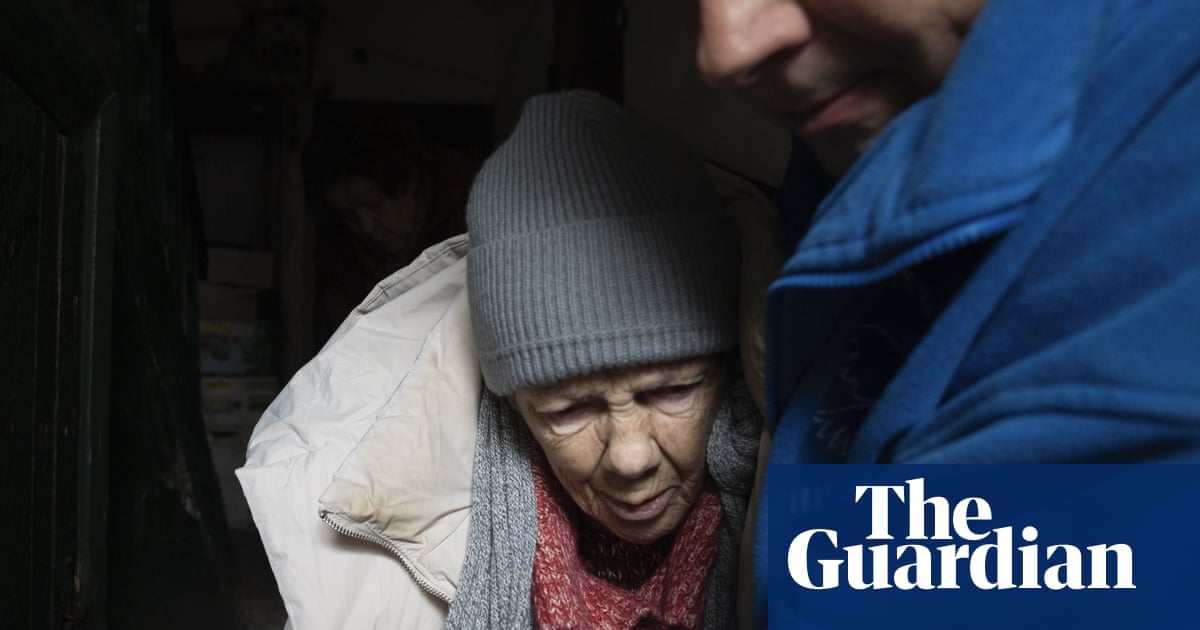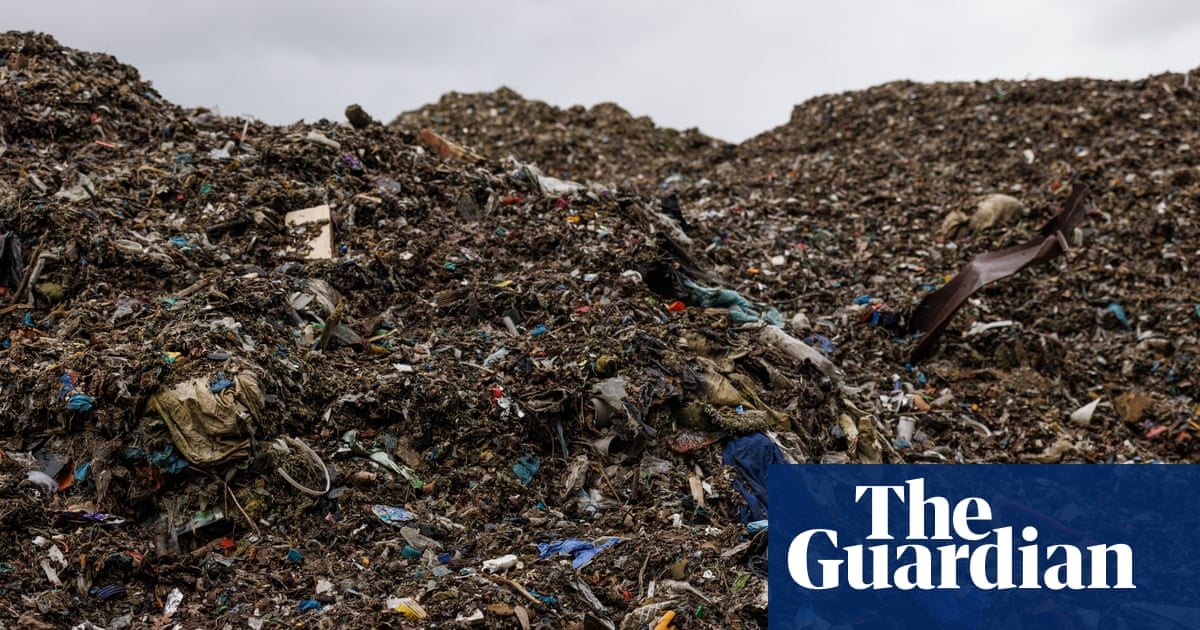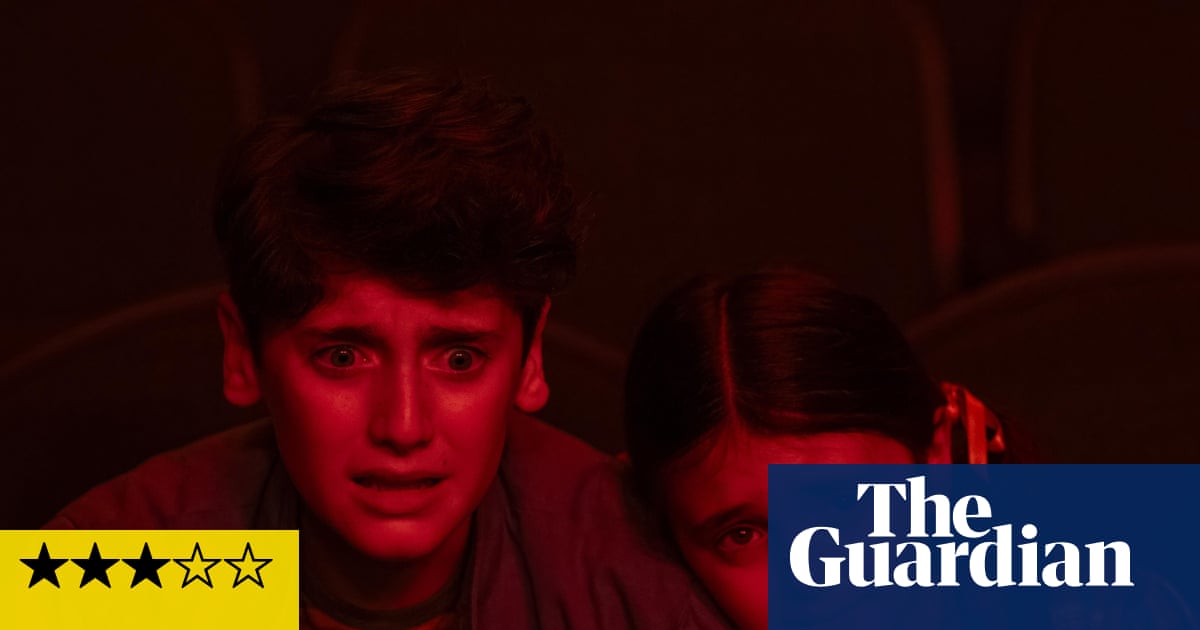On the morning of 7 October 2023, the author of the Guardian’s Gaza diary woke up planning to play tennis. “This year I decided to take care of my mental and physical health,” he wrote in his first entry, published six days later. “This means no stress, no negative energy and definitely more tennis.”
Instead, with the news full of how Hamas had broken out of the territory, killing 1,200 people, he found himself scrambling desperately for the documents showing he owned his apartment in Gaza City, in the north of the strip. “If our building gets bombed, I need evidence that this apartment belongs to me,” he wrote.
The thirtysomething had long been used to what Palestinians in Gaza called “situations” – escalations in the battle between the Israel Defense Forces (IDF) and Hamas. But he soon realised this situation was different. Israel’s response has, so far, killed more than 57,000 and left 1.9 million people – 90% of the Gazan population – displaced.
On 13 October, Gaza City’s residents were told to evacuate and head south. “It feels like 1948,” the diarist wrote, a reference to the Nakba (“catastrophe”), when 700,000 Palestinians were expelled from a newly independent Israel.
“It is group migration,” he said. “There are many people walking while carrying their children and their bags because they couldn’t find a car. Some people are leaving in buses and others in the back of trucks. Whenever they see people walking, they invite them to jump in. It breaks my heart.”
His diaries were full of questions. “Is the abnormal going to become the normal? Is two weeks of misery all it takes?”
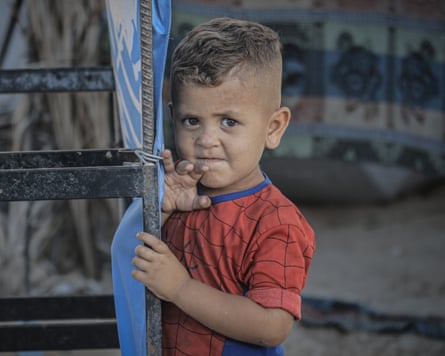
A gentle man, he looks back at what he wrote at that time and says: “I see all these questions I was asking. I had no answers back then. Now I’ve seen how it turned out. And it was horrible.”
I’ve known him for perhaps five years, so find myself in the odd position of interviewing someone who exudes life – but who now, afraid for that life, is retreating ever further into secrecy and darkness.
The prospect of these diaries, which ran over six months and 48 columns in the Guardian, being published as a book has been causing him panic attacks. More than 180 journalists have been killed in Gaza since October 2023 (some sources suggest that figure is closer to 210). So the book is credited to Anonymous – not even a pseudonym.
So, forgive me if certain details here are hazy. The diarist and I first met because I try to help young journalists in authoritarian states and war zones to get published in English language media. He was the perfect candidate, wanting to tell the stories we normally don’t hear from Gaza – of musicians, sportspeople, even the trouble Palestinian men have with crying.
He says of his life then: “I had a home, an apartment, a career, friends, normal things that no one thinks about, like the pharmacist in my street handing me my medicine, knowing I’d pay on my next visit.”
He’s in his 30s, and one of Gaza’s intellectuals: middle-class Palestinians are known for their education throughout the Middle East. His parents are dead, and he lived with his sister, their cats and a goldfish. “Before 7 October, there were many places around me that had witnessed me feeling happy, laughing, crying,” he says.
As the IDF began its assault, first in retribution, then in annihilation, he sent me news of his new life between falling bombs.
At the time, I was struck by how his diary entries arrived devoid of the sectarian fury that sticks like phosphorus to all opinions on Israel/Palestine. What emerged were descriptions of the reality of the people around him, innocent people, told in his simple poetic style. Now, he talks of how important it was for him to portray Palestinians in Gaza as normal – particularly the men, who are often seen as monsters. “The men are nice people, they have feelings. They are not some kind of a different species.”
In the first fortnight of the war, he had to evacuate three times, to a friend’s house, to another friend’s house and then, when they, too, had to evacuate, to a house in a town in the south of the Gaza Strip, belonging to a man called Ahmad, who didn’t know them but took them in regardless.
“My sister and I are among the lucky ones,” he wrote. The unlucky were those collecting in the schools and open spaces, who he would visit with fresh water. “The school is no longer an educational entity,” he wrote. “It is literally a camp.”
He wrote about the changes in those around him. “Making decisions was the most difficult thing,” he says now. “I know people who distributed their children among different homes, so that if one house got bombed, the rest would live. Too often, they were right to do so.”
His goldfish didn’t last, but he and his sister went to great lengths to keep their cats alive. They became a motif that attracted a remarkable number of the Guardian’s readers. Saving them, even putting himself in danger to do so, became an act of faith and a point of dark humour. A friend wrote to say she had created a “prayer bubble” to keep him safe, and he asked for the cats to be included.
There were other stories: “I go with Ahmad to get some stuff for the house. On our way, we see a boy of about 14 walking with what seems like his two younger sisters. They are holding bags of crisps in their hands, unopened. He tells them: ‘Eat your crisps before we get bombed and die.’”
And, of course, there was news of deaths: “I wonder how scared my friend was. Was he hugging his girls when they all died?”
He settled into his anything but routine life with his host family, all the while expressing his luck to have such shelter. At moments of despair, he would refer to a piece of poetry, such as Mary Elizabeth Frye’s Do Not Stand at My Grave and Weep. “Do not stand by my grave and weep / I am not there. I do not sleep / I am a thousand winds that blow.”
There were moments of intense fear, when bombs landed nearby, or further moves were contemplated. And there were moments when the internet was cut, leaving him isolated. Worried messages would then flood in from readers, and I would hear from Tracy, the outwardly hard-bitten editor on the Guardian who became his most concerned and loyal supporter.
He never lost his spirit, though. “There was this awful seed of hope inside of me,” he says now. “It never died. But deciding to remain hopeful was very difficult and it took a lot of energy.”
Ahmad’s family was large. At times there were 35 people in the house. There was Ahmad’s mother, grandmother to three children who were also there. She kept everyone alive, somehow creating at least one meal a day.
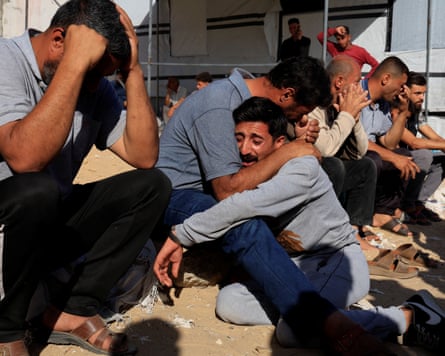
“Gaza’s children hadn’t been able to go to school because of Covid,” he tells me. “Then came the war. So there are children who are eight years old who don’t know how to write their name. The grandmother used to dedicate an hour of her day to teaching her grandchildren. How come she’s not known as one of the most impressive people ever?”
Early in the diaries, he revisited a subject, reporting that Gazan men do cry: “I saw one collapsed building with three men standing opposite, looking at it, and heavy tears were falling from their eyes.”
Then came the day the diaries stopped. The diarist, his sister and the cats had crossed Gaza’s southern border, to become exiles. I asked him to keep writing, and he has, but he no longer wanted to publish. He said he was too identifiable, that the danger was far from over. “And what about when I return?” he asked.
There was also his overwhelming guilt that he had managed to survive and get out. “Ahmad’s family, who hosted us, are still in Gaza. And you know what? In this very tough moment, when people are starving, every time I talk to them, they say, ‘We are fine. We are managing.’ And I know that they are not managing – they weren’t managing when I was there. Those great people, who helped others, who welcomed me and my sister, oh my God, I will always be for ever in debt to them.”
He pauses to collect himself, then adds: “It seems that those who were killed were the lucky ones, because they did not have to see what came next.”
He prefers not to reveal too much about his life now, or where he is, but is happy to talk about exile. “It feels like your soul has been snatched out of your body,” he says.
“What are we as human beings, if not our stories and memories and moments? If you walk by a street and remember: ‘Here, I met my friends,’ or: ‘Here I held someone’s hand who I was in love with,’ or: ‘Here I cried,’ or: ‘Here I buried my mother.’ If those things are taken, what is left?”
Having looked after his family within Gaza, he now finds himself struggling to look after himself. “A friend gave me a plant and I had a panic attack. I cannot commit to a plant.”
At present, he is surrounded by fellow refugees, and has noticed a new decisiveness. “I know people who decided to get a divorce. When they were in Gaza, they couldn’t because of the traditions. Now they say, ‘We were about to be wiped off the earth, so at least let me live the life I wanted.’”
Others have taken different directions. He has heard of people turning to drugs, alcohol, sex, “or hurting the people in their lives, being physically aggressive”. He instead has returned to sport. “So I’m blessed, until this moment.”
He has to keep moving, he says. His sister tells him they have to stay ahead of tragedy. “She says, ‘This is history repeating itself. It’s not something new.’”
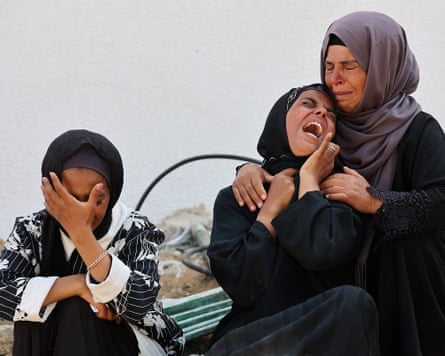
And all the while, he swings from hope to despair. “I met a guy, not Gazan, who is working hard because he wants to get an apartment, and I said, ‘Please take time to smell the flowers. Take time to enjoy your life. You can lose it all in a moment.’”
His hopes of returning to Gaza have been fading. He tells me to look at Google satellite images of Gaza. I do and it is horrifying, but he says it’s more about the people.
A friend was talking about how entire peoples can be eclipsed – the Native Americans, say, or Indigenous Australians. “I replied, ‘Are you telling me that in 100 or 200 years, when people think about the culture in this land next to Egypt, they will say, ‘Well, there were people here called the Gazans, but then a new culture came. We should apologise to those Gazans’? Are you telling me we will end up being a line in someone’s story?”
Having received his diaries in real time, I have of course spent much of the last 21 months thinking about my friend, a bit like a helpless idiot calling down to someone at the bottom of a well.
But I believe, strongly, that while his instinct has been to write as an anonymous everyman, this is no diary of a nobody. It has felt like the diary of a point of light, moving through a darkening landscape, one among millions of points of light, being eclipsed one by one.
The clock has ticked round to 1am as we talk. I ask who he hates. “Believe it or not, I don’t hate anyone,” he says. “It is not my nature, hating people.”
I ask about the cats. “Oh, they have grown fat!” It’s late, but he wants to keep talking. “I miss sleeping well,” he says.

 3 months ago
54
3 months ago
54

